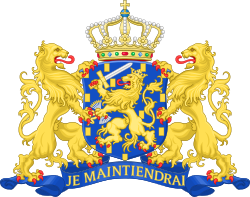| This article is part of a series on |
| Politics of the Netherlands |
|---|
 |
A minister plenipotentiary (Dutch : gevolmachtigd minister) represents the government of one of the Caribbean constituent countries as part of the Kingdom of the Netherlands. The minister is part of the government of that country, but resides in the Netherlands, where they are part of the Council of Ministers of the Kingdom of the Netherlands.